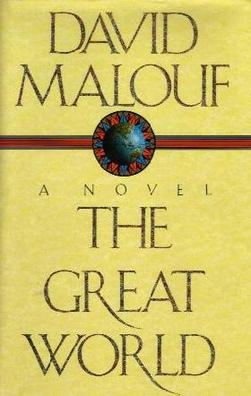Related Research Articles
The d'Artagnan Romances are a set of three novels by Alexandre Dumas (1802–1870), telling the story of the 17th-century musketeer d'Artagnan.
The Miles Franklin Literary Award is an annual literary prize awarded to "a novel which is of the highest literary merit and presents Australian life in any of its phases". The award was set up according to the will of Miles Franklin (1879–1954), who is best known for writing the Australian classic My Brilliant Career (1901). She bequeathed her estate to fund this award. As of 2016, the award is valued at A$60,000.
Charles Herbert Shaw was an Australian journalist and novelist.
The Australian Literature Society Gold Medal is awarded annually by the Association for the Study of Australian Literature for "an outstanding literary work in the preceding calendar year." From 1928 to 1974 it was awarded by the Australian Literature Society, then from 1983 by the Association for the Study of Australian Literature, when the two organisations were merged.
The Age Book of the Year Awards were annual literary awards presented by Melbourne's The Age newspaper. The awards were first presented in 1974. After 1998, they were presented as part of the Melbourne Writers Festival. Initially, two awards were given, one for fiction, the other for non-fiction work, but in 1993, a poetry award in honour of Dinny O'Hearn was added. The criteria were that the works be "of outstanding literary merit and express Australian identity or character," and be published in the year before the award was made. One of the award-winners was chosen as The Age Book of the Year. The awards were discontinued in 2013.

Dancing on Coral is a Miles Franklin Award-winning novel by Australian author Glenda Adams.

The Great World is a 1990 Miles Franklin literary award-winning novel by the Australian author David Malouf.
This article presents a list of the historical events and publications of Australian literature during 2007.
This article presents a list of the historical events and publications of Australian literature during 2006.
This article presents a list of the historical events and publications of Australian literature during 2008.
This article presents a list of the historical events and publications of Australian literature during 2003.

Albert Dorrington was an English writer, active in Australia, who was born in Fulham, London, England.
This article presents a list of the historical events and publications of Australian literature during 1927.
This article presents a list of the historical events and publications of Australian literature during 1928.
This article presents a list of the historical events and publications of Australian literature during 1929.
This article presents a list of the historical events and publications of Australian literature during 2001.
This article presents a list of the historical events and publications of Australian literature during 1987.
This article presents a list of the historical events and publications of Australian literature during 1991.
This article presents a list of the historical events and publications of Australian literature during 1997.
This article presents a list of the historical events and publications of Australian literature during 1998.
References
- ↑ "Austlit — The Bulletin Novel Competition". Austlit. Retrieved 22 July 2024.
- 1 2 ""The Bulletin's £1700 Prize Story Competition"". The Bulletin, 17 November 1927, p5. Retrieved 22 July 2024.
- ↑ ""£1700 Prize Story Competition"". The Bulletin, 1 September 1927, p2. Retrieved 22 July 2024.
- ↑ ""The Bulletin Prize Novel"". The Bulletin, 17 November 1927, p5. Retrieved 22 July 2024.
- ↑ ""The Bulletin Prize Story Competition"". The Bulletin, 22 August 1928, p9. Retrieved 22 July 2024.
- 1 2 ""Bulletin Prize Novels – Second Competition"". The Bulletin, 19 March 1930, p9. Retrieved 22 July 2024.
- ↑ ""The Bulletin Literary Competitions"". The Bulletin, 29 August 1928, p9. Retrieved 22 July 2024.